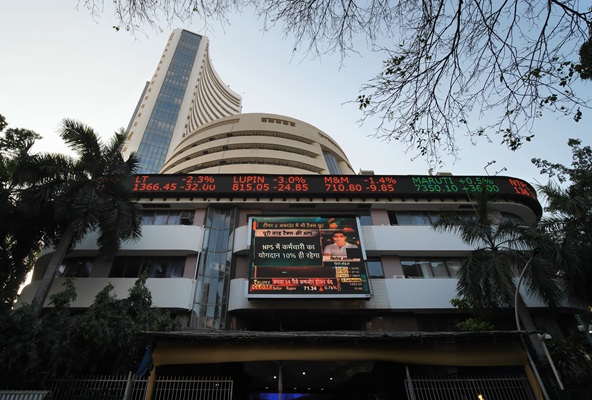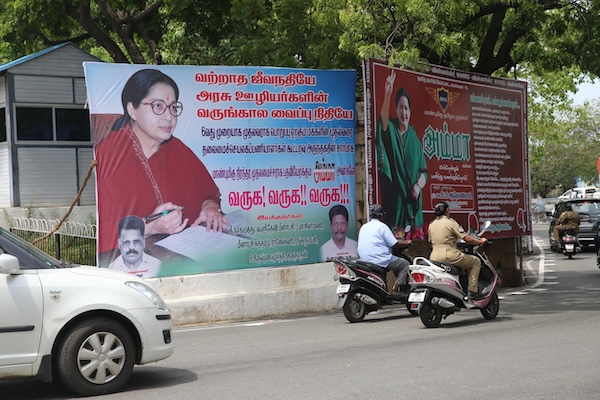.png)
Information Asymmetry Creates Chaos While Exchanges Pursue Profit Path
Exchanges must master data duality—balancing mandated market transparency with monetisable analytics magic while meeting regulatory rules.


Indra is a Senior Industry Advisor in the BFSI unit at TCS, with three decades of experience in business strategy and IT consulting. He leads CXO advisory, and drives data and AI-led innovations.
July 23, 2025 at 3:29 AM IST
The concept of information asymmetry refers to unequal information between counterparties, where one side of the transaction has more information than the other, disrupting market efficiency. In the context of financial markets, the Modigliani-Miller Theorem underlined the concept as a key assumption of no information asymmetry in perfectly efficient markets.
Further, extending George Akerlof's 1970 research on unequal information leading to market failures, Michael Spence introduced signalling theory, and Joseph Stiglitz analysed policy implications. They were jointly awarded the Nobel Prize in Economic Sciences in 2001 for this pioneering work.
These theories established that asymmetric information creates undesirable scenarios of adverse selection and market distortion whilst negatively impacting the confidence of participants.
Information Asymmetry
The SEBI 25 June 2025 order penalised the BSE for failing to provide equal and simultaneous access to corporate disclosures to all stakeholders, the issue of information asymmetry and related nuances of market integrity and equitability in the Indian markets comes to the fore.
In the early 2010s, a competitive race between exchanges to provide sub-microsecond latency of market information and trading led not only to trading platforms overhaul but also customised colocation and preferential market data feeds. SEBI's protracted contest on colocation issue involving NSE suggests that certain brokers secured faster access to the exchange's servers, gaining unfair trading advantages.
The crux of the issue in the above cases involving the leading exchanges is centred on information asymmetry—caused either by conscious business decision or the IT architecture of information systems. By inducing undesirable asymmetries in the market information, exchanges have accorded implicit priority to commercial interests over their fiduciary role in promoting integrity and fairness in the market.
These invariably lead to market abuse by participants with unfair information advantage to exploit trading dynamics and market microstructure patterns for illegal gains.
Reckoning relevant regulatory guidelines is important here. SEBI's Stock Exchanges and Clearing Corporations Regulations underscores 'record keeping and disclosure of trade related information' as one of the critical functions of stock exchanges.
SEBI's February 2022 circular emphasises the significance of public dissemination of securities market data to address information asymmetry and ensure adequate investor and stakeholder information. These guidelines stipulate that data made available to users under regulatory mandates should be provided 'free of charge' for viewing, downloading, and further analysis.
Data Monetisation
Amid rising AI waves, the application of AI/ML and LLMs adds newer abilities to swiftly analyse voluminous alternative data and correlate qualitative indicators, themes and sentiments with real-time analysis of market data, to derive trading signals and predictions.
This trend has driven a continuous rise in institutional investors' spending on financial market data and analytics. Burton-Taylor International Consulting reports that global spending on financial markets data and news touched $44.3 billion in 2024, with a CAGR of 7.5% between 2020-2024. Also, spending on alternative data by the investment industry in 2024 is estimated to be in the range of $8-12 billion.
Analysis of the data and analytics revenue of leading global exchanges (ICE, CME, LSE, Deutsche Börse, SIX, and Euronext) indicates a CAGR of 23.3% between 2019-2023, with their average data revenue share around 30% in 2023.
Some exchanges' data portfolio expansion through aggressive acquisition strategies, such as ICE acquiring Interactive Data, LSE acquiring Refinitiv, and Deutsche Börse acquiring Axioma, ISS, and Discovery Data, have richly paid off.
In comparison, the data revenue share of Indian exchanges hovers at a low single-digit figure. Of late, the Indian exchanges have started pursuing their data monetisation strategy to expand their traditional data and analytics offerings, primarily comprising tick-by-tick market data and index feeds.
NSE's acquisition of Cogencis Information Services* and restructuring of Data & Analytics and Indices units are aimed to boost its data revenue by tapping the growing demands of the investment industry.
Monetisation in India
The 2003 corporatisation and demutualisation drive considerately framed the provision of 'for profit' motive for stock exchanges, enabling them to explore commercial interests whilst balancing their fiduciary responsibilities.
Beyond the ambit of public dissemination of data under regulatory mandates, exchanges have wider space to monetise their held and unexplored data assets. Formulation of insights-driven value-added services and intelligence-enriched process capabilities across the investment value chain brings new revenue streams for them, whilst creating new value for investors.
Certainly, the primacy of commercial interests should not hinder exchanges from credibly fulfilling their regulatory obligations. Prioritising their prime role of a frontline regulator, they must carefully navigate their data monetisation strategy to ensure the free and unfettered flow of obligated market information.
*Disclaimer - The founding team members of Basispoint Insight held editorial leadership positions in Cogencis Information Services before it was acquired by NSE Data & Analytics Ltd.



